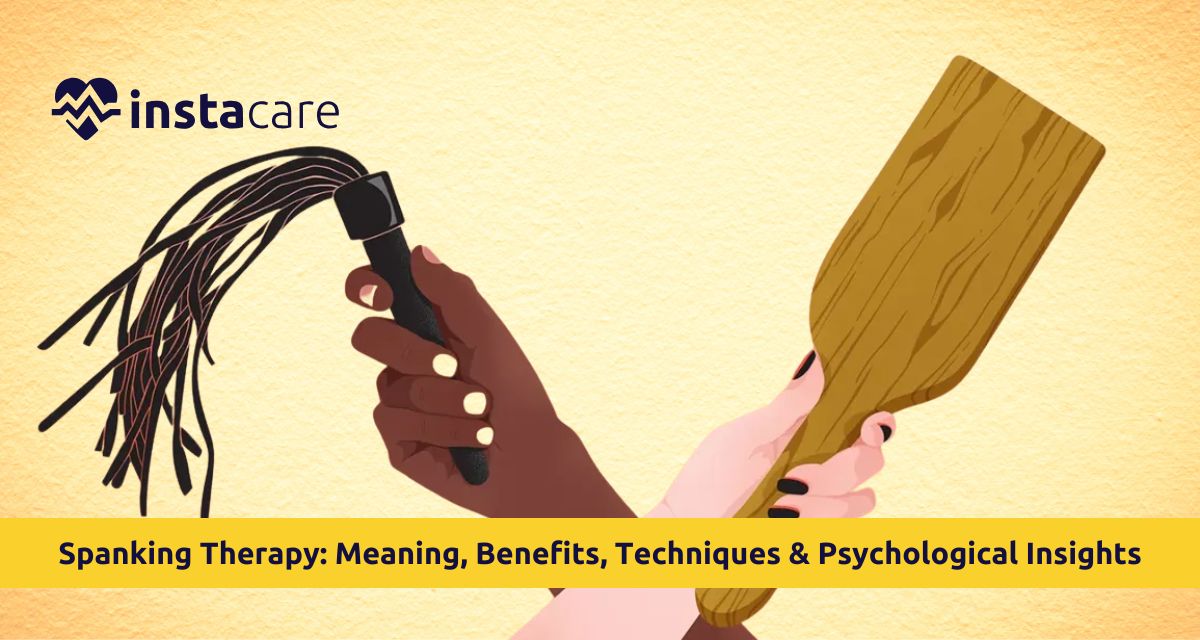But what exactly is spanking therapy meaning and does it have a place in an ethical wellness or spanking therapy mental health setting? This article addresses the definition of spanking therapy, its purported spanking therapy benefits, criticisms, spanking therapy ethics concerns, and available alternatives.
What is Spanking Therapy?
Spanking therapy is the consensual act of physically spanking one and another under the guidance of a directed session for therapeutic or emotional gratification. As opposed to punitive spanking, where most of the facets are aligned with punishing, spanking therapy sessions are designed towards attaining emotional breakthroughs, contained spanking therapy for stress relief, or increased intimacy among couples.
Although sometimes it is misinterpreted or misrepresented as being purely sexual in motive, its advocates contend that spanking therapy is not necessarily erotic. Instead, it could be employed to defuse tension, elicit emotional catharsis, or even as a therapeutic measure for healing a relationship through spanking therapy techniques.
The Psychological Concept Behind It
The spanking therapy psychology is based on the assumption that physical stimulation can stimulate emotional response. Spanking therapy professionals liken it to other techniques like primal therapy or somatic experiencing in which the body is employed as a gateway into dispersed stored-up trauma or emotion.
The principal psychological mechanisms are:
- Endorphin release: Painful and consensual pain can be released with endorphins and dopamine and result in euphoria resulting.
- Catharsis: Spanking therapy can liberate unconscious anger, sadness, or guilt.
- Power control: In spanking therapy for couples, the exercise may reinforce emotional roles, re-establish trust, or reverse relationship stasis through spanking therapy roleplay.
Spanking therapy professionals trained people will be more likely to employ structure, consent, and aftercare to make the experience safe and emotionally healthy.
Claimed Benefits of Spanking Therapy
Though there is little empirical spanking therapy research to validate the practice, client testimonials and anecdotal spanking therapy stories record various spanking therapy benefits:
1. Emotional Release
Some clients have laughed or cried in spanking therapy sessions, thought to release built-up emotions.
2. Stress Relief
Physical feeling can divert attention away from fear, effectively giving a reset like deep tissue massage or cold water therapy exposure. Spanking therapy for
stress relief is a most frequent reason for seeing them.
3. Greater Intimacy
In spanking therapy for couples, reliving consensual spanking therapy roleplay can build vulnerability and greater emotional intimacy.
4. Support for Psychological Health
Others use spanking therapy mental health approaches to recover from trauma, or to break fruitless behavior patterns. This is more controversial than not and must only be done under professional guidance with caution.
5. Reprogramming of Behavior
Its proponents have argued that the use of spanking in guided therapy can help to change behavior or responsivity symbolically but emphatically through specific spanking therapy techniques.
Risks and Criticisms of Spanking Therapy
As with most controversial practices, spanking therapy also has critics and dangers. Among the primary criticisms are:
1. Rare Scientific Research
It is poorly researched spanking therapy research, and most of the evidence is anecdotal success, not peer-reviewed studies.
2. Ethical Concerns
The combination of physical contact, pain, and emotional exposure raises grave spanking therapy ethics concerns regarding spanking therapy. Is it therapy, or spanking therapy roleplay in the guise of healing?
3. Risks of Misuse
Without the help of spanking therapy professionals, spanking therapy could be abuse or exploitation. Victims of trauma can return to their trauma without proper psychological anchoring.
4. Misconstrual as Sexual
Both sexually erotic in nature and not, the practice is triggerable or has sexual connotations, especially in spanking therapy roleplay scenarios. This complicates boundaries between therapist and client.
5. Physical Hazards
As with all effecting exercises, a bruise, destruction of a nerve, or physical injury can occur if spanking therapy techniques are done incorrectly.
Alternatives to Spanking Therapy
If one would like to consider the idea but is not aware of its physical framework or spanking therapy ethics underpinnings, there are some alternatives which offer the same spanking therapy benefits:
- Somatic Therapy: Is meant for body awareness to unburden trauma and tension.
- Primal Therapy: Allows screaming or physical release to free repressed emotion.
- Cognitive Behavioral Therapy (CBT): Offers systematic thinking-reversal for behavior modification.
- Tantric Therapy: Utilizes energy-based techniques of emotional healing and bonding, which can be adapted for use in spanking therapy for couples.
- Roleplay Therapy: Roleplayed situations can be resolved harmlessly under the guidance of a trained therapist without physical impact.
Such alternatives may be more acceptable to the wider psychological and wellness communities and yet deliver the emotional payoff spanking therapy aims to provide through different spanking therapy techniques.
Conclusion
Spanking therapy is most probably the most contentious practice of the alternative spanking therapy mental health movement. As much as others call it a revolutionary method of emotional healing and attachment, there are some who view it as an abusive and even dangerous practice devoid of scientific spanking therapy research backing.
Its destiny would be thereafter reliant on two factors: further spanking therapy research and making distinct ethical guidelines for spanking therapy professionals.
In the meantime, whoever is alive to do so should do so with caution, stress consent and safety, and ideally seek advice from an experienced spanking therapy mental health expert beforehand. Just like any therapy or wellness modality, it will not fit all. Most important is that the approach is compatible with your values, goals, and emotional comfort when considering spanking therapy sessions.
Please book an appointment with the
best Physiotherapist in Lahore, Karachi, Islamabad, and all major cities of Pakistan through
InstaCare, or call our helpline at 03171777509 to find a verified doctor for your disease.

